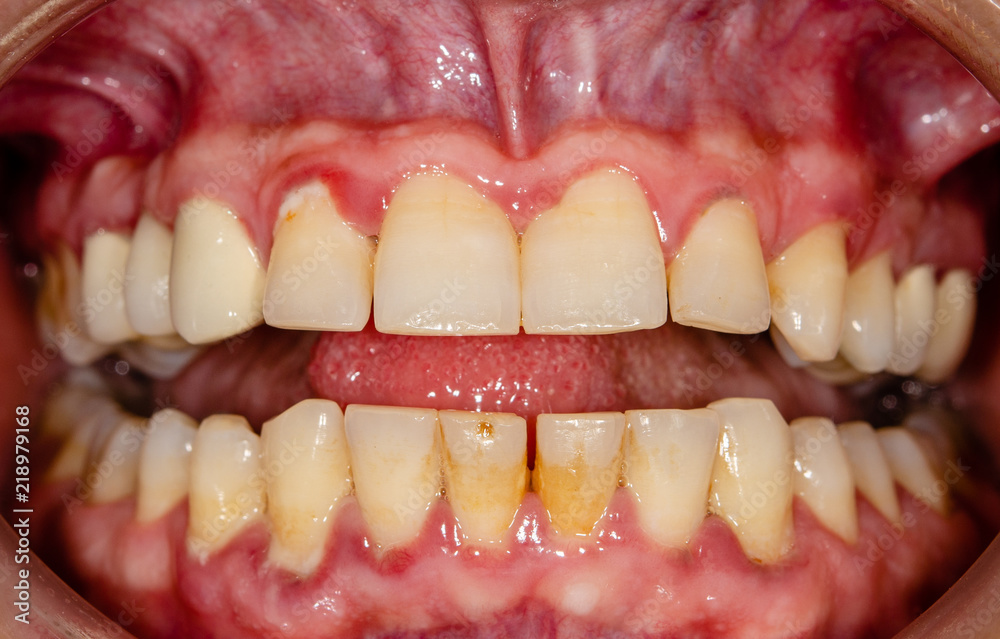Bleeding Gums: Causes, Symptoms, and Treatment
Bleeding gums are often the first sign of gingivitis or other gum diseases. However, they can also signal other health concerns, such as hormonal changes, vitamin deficiencies, blood-clotting disorders, or even stress.

Common Causes
Dental-Related Causes:
- Poor oral hygiene
- Smoking
- Gingivitis: The earliest stage of gum disease
- Periodontitis: Advanced gum disease
- Trench mouth: A severe form of gum disease
Other Health-Related Causes:
- Diabetes
- Hormonal fluctuations (puberty, pregnancy, or menopause)
- Vitamin C deficiency (scurvy)
- Vitamin K deficiency
- Blood-thinning medications (anticoagulants)
- Pernicious anemia
- Thrombocytopenia
- Hemophilia
- Von Willebrand disease
- Oral herpes
- HIV/AIDS
- Stress
- Leukemia
How Are Bleeding Gums Treated?
Treatment depends on the root cause of the bleeding.
For Gum Disease:
- Improved oral hygiene
- Antibiotics
- Deep cleaning (scaling and root planing)
- Osseous surgery (to reduce pockets around teeth)
- Laser periodontal therapy
For Non-Dental Causes:
If gum disease isn’t the issue, your healthcare provider may investigate other underlying health conditions, such as vitamin deficiencies, diabetes, or blood-clotting disorders. Based on the diagnosis, they’ll recommend a tailored treatment plan.
Managing at Home
If your gums bleed and don’t improve within two weeks, visit your dentist. Meanwhile, you can try these tips:
- Brush 2–3 times daily using a soft-bristled toothbrush
- Floss once daily
- Rinse with warm saltwater
- Use antibacterial mouthwash
- Avoid smoking
Potential Risks of Ignoring
If left untreated, it caused by gum disease can worsen, leading to:
- Damage to tissue, ligaments, and bone supporting your teeth
- Persistent infection
- Bad breath
- Tooth loss
If the bleeding stems from another health condition, the symptoms—and the underlying condition—could progress without proper care.
Preventing Bleeding Gums
You can often prevent bleeding gums through good oral hygiene and regular dental checkups. However, some causes, like hormonal changes or blood-clotting disorders, may not be preventable.
When to See a Healthcare Provider
Bleeding gums may resolve on their own. However, if bleeding persists for more than two weeks or you notice other symptoms, such as bad breath or swelling, schedule an appointment with a dentist or primary care provider.
Frequently Asked Questions
1. What deficiencies cause?
Vitamin C or vitamin K deficiencies are common culprits.
2. When should I worry about ?
Occasional bleeding from biting into hard foods is usually harmless. However, random or prolonged bleeding without an apparent cause may indicate gum disease or another health issue.
3. How long can I ignore bleeding gums?
While bleeding gums aren’t usually an emergency, prolonged symptoms (more than two weeks) should prompt a visit to your healthcare provider to prevent worsening conditions.
Takeaway
Bleeding gums are a common symptom of gum disease or other health concerns. If your gums bleed when you brush, or the bleeding persists, consult your dentist or doctor to address the issue early. Regular dental visits and proper oral hygiene are key to maintaining healthy gums.
